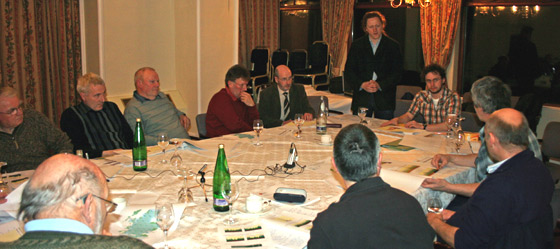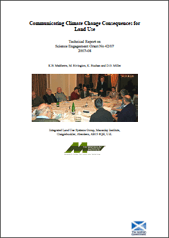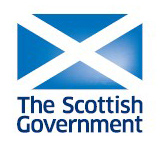Communicating Climate Change Consequences for Land Use
The Challenge
Climate change is identified as a key threat to rural communities the Scottish Sustainable Development Strategy. The nature of the climatic changes faced by these communities needs to be communicated to them, in ways that are meaningful to their decision making. To this end Macaulay have developed with stakeholder groups a series of climatic change indicators and tested approaches to their communication via meeting organised in collaboration with rural NGO’s.
Between January and March 2008 there were a further series of four workshops organised in partnership with FWAG Scotland, NFUS and other rural NGOs. The meetings brought together practitioner, policy and research communities to develop shared understandings of climate change and land use issues and how to respond.
Purpose of the Meetings
The meeting presented and received feedback on some of the work that The Macaulay Institute had undertaken by taking the outputs from climate change research and translating them into terms that are more meaningful to land-use stakeholders. The Macaulay team tested the use of agro-meteorological indicators, for example the well known Tsum200, rather than just presenting the climate changes using only meteorological data, which can be difficult to interpret.
A wide range of indicators was considered with the research team seeking to prioritise these and find others, that are region, crop or species specific or that relate to particular management events that are weather dependent.
The meeting also provided a forum for a wider discussion of issues related to climate change and land use. The outcomes of the meeting were used as a test of the usefulness of the tools being developed by the LADSS team, to focus future research and to contribute to a briefing document being prepared for RERAD.
The meeting was run in a round-table format, facilitated by the research team with up to 16 participants per event to ensure everyone had a chance to participate in the debate and discussion. The meeting used local case study examples that compared recent historical data with future forecasts.
The meeting format was very flexible but usually lasted between 2 and 3 hours. The meetings were open to all with a professional or personal interest in land management, from whatever perspective – farming, conservation, rural development, etc. An interest in climate change and a willingness to participate in an open debate was the only qualification.

Downloads
The Final Report is available.
The handouts from each of the meetings are also available below.
- Prabost (Kyle of Lochalsh meeting, 28 February 2008)
- Lairg (Golspie meeting, 6 March 2008)
- Dunstaffnage (Oban meeting, 13 March 2008)
- Aviemore (Aviemore meeting, 20 March 2008)


